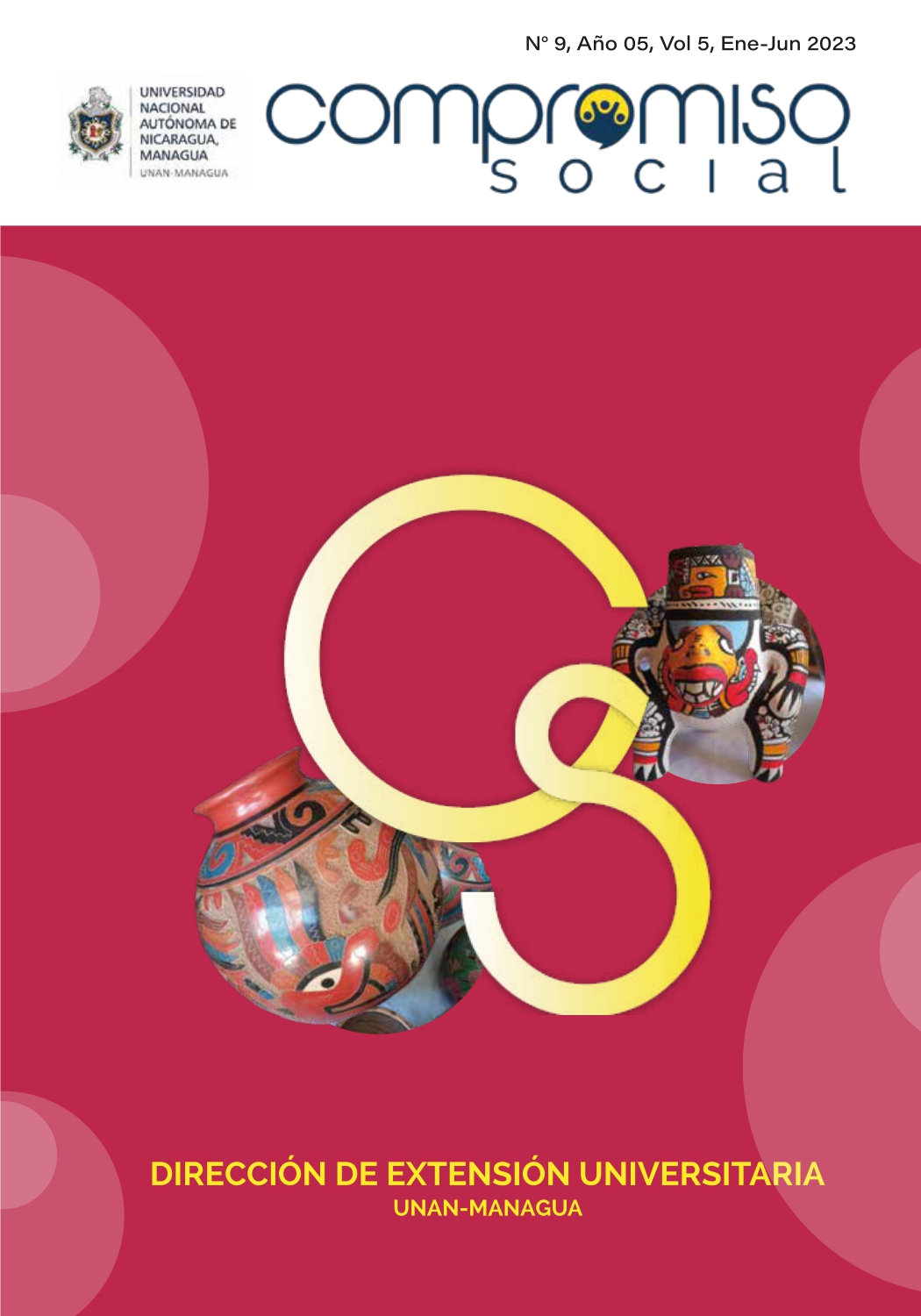Psychosocial situation of the FAREM-Estelí university community in the face of COVID-19
DOI:
https://doi.org/10.5377/recoso.v9i9.18578Keywords:
Psychosocial, Effects, Stress, Factors, COVID-19Abstract
Analyze the psychosocial effect of COVID-19 on students, teachers and administrative staff of FAREM-Estelí in the second period of 2021, since these experiences have not yet been externalized due to the emotional implications it generates. The methodology of this research is based on a qualitative study of a descriptive phenomenological type, since it seeks to know the experiences of the target group. The technique applied was semi-structured interviews online, through a Google Form. The results obtained were processed through the Excel and Word program, in which the answers obtained in each of the applied instruments were transcribed, then the respective analysis was carried out. Among the most relevant data, it was found that the experiences lived by the participants in times of the pandemic are enriching at the level of psychosocial strengths to face adversities personally and collectively. The experience of this research facilitated the development of a psychosocial proposal that allows the development of actions and the proactive participation of the university community in the face of adverse scenarios.
Downloads
References
ÀnimaTEA. (2015). ÀnimaTEA. Retrieved 21 de Diciembre de 2021, from http://www.animatea.cat/Blog_El_Modelo_Sistemico.html
Balde, C., Del Barrio Pelaz , M., Díaz , D., Cubelo, M., & Moreno, A. (2021). Vivencias del personal de enfermería del Hospital San Juan de Dios de Tenerife en tiempos de Covid-19. Cultura de los Cuidados, 25(2). https://rua.ua.es/dspace/bitstream/10045/116763/1/CultCuid60Esp_05.pdf
Brown, M. (2020). “El sistema educativo debe garantizar el bienestar y apoyo psicosocial como el desarrollo socioemocional de todos y todas”. Sistematización seminario virtual #2, 27. https://reliefweb.int/sites/reliefweb.int/files/resources/seminario_salud_mental_apoyo_psicosocial_y_aprendizaje_socioemocional_cluster_educacion_ven.pdf
Díaz-Castrillón, F., & Toro-Montoya, A. (2020). SARS-CoV-2/COVID-19: el virus, la enfermedad y la pandemia. Medicina y Laboratorio , 24(3), 183-205. https://docs.bvsalud.org/biblioref/2020/05/1096519/covid-19.pdf
Gutiérrez , A., Rodríguez, L., Torralbas, A., Calcerrada, M., Cruz, A., Rodríguez, K., . . . Ávila, Y. (2021). Amelica. Impacto psicosocial de la cuarentena por COVID-19 en la comunidad 26 de Julio en Holguín, 11(2). Retrieved 20 de Noviembre de 2021, from http://portal.amelica.org/ameli/jatsRepo/444/4442245010/4442245010.pdf
OMS. (2020). OPS. La OMS caracteriza a COVID-19 como una pandemia: https://www.paho.org/es/noticias/11-3-2020-oms-caracteriza-covid-19-como-pandemia#:~:text=Ginebra%2C%2011%20de%20marzo%20de,puede%20caracterizarse%20como%20una%20pandemia.
Velázquez, L. (2020). La COVID-19: reto para la ciencia mundial. Anales de la Academia de Ciencias de Cuba
Downloads
Published
How to Cite
Issue
Section
License
Copyright (c) 2023 Universidad Nacional Autónoma de Nicaragua, Managua(Unan-Managua)

This work is licensed under a Creative Commons Attribution-NonCommercial-ShareAlike 4.0 International License.




